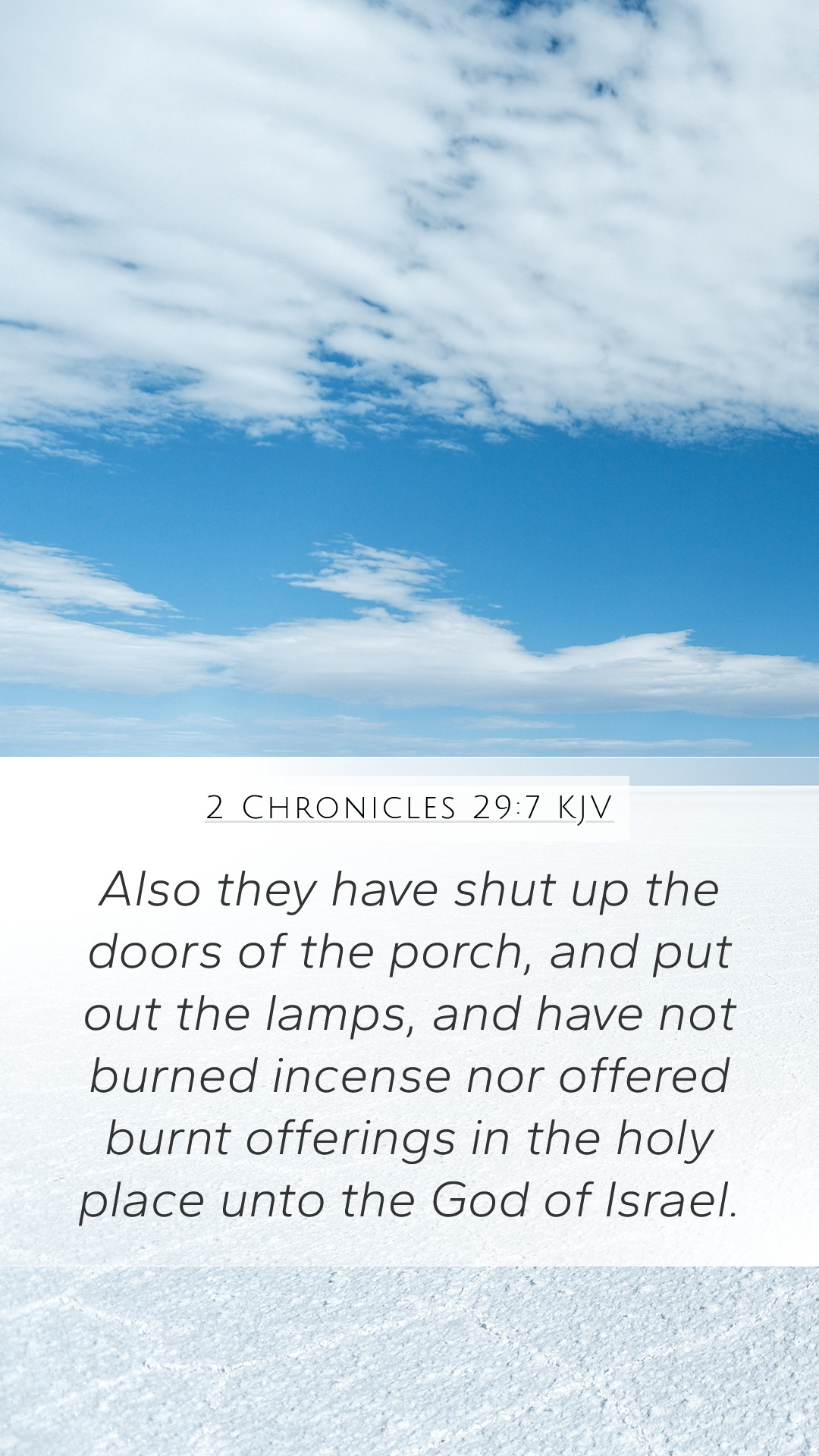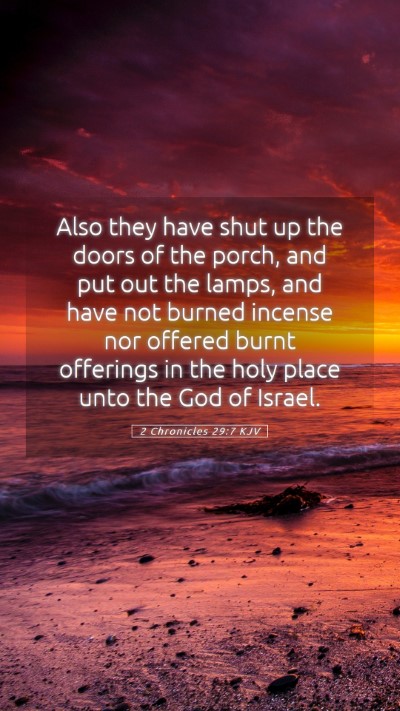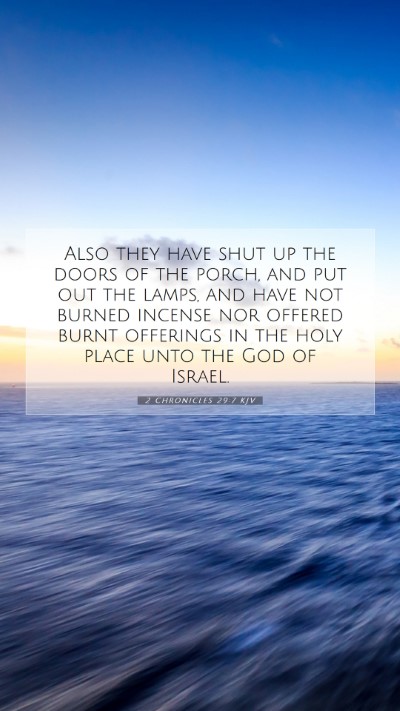Understanding 2 Chronicles 29:7
In this verse, King Hezekiah addresses the priests and Levites concerning the long-standing issues with the temple and the worship practices of the Israelites. He specifically points out that their forefathers had neglected their responsibilities and duties in serving the Lord within the temple, leading to significant religious decline among the people.
This verse serves as an important reminder about the significance of proper worship and the vital role that leaders play in maintaining spiritual integrity within the community. Here we will explore its deeper meanings through the eyes of various biblical commentators.
Contextual Background
The events in 2 Chronicles 29 occur during King Hezekiah's reign over Judah, marked by significant religious reforms intended to restore rightful worship of Yahweh. The historical context is essential as it reflects a time when the temple worship had been neglected and idolatry had spread among the people.
Bible Verse Commentary
According to Matthew Henry, the failure of the priests and Levites to perform their duties signifies a general decline in spiritual life among the Israelites. This verse is a diagnostic tool assessing their neglect not just as a liturgical issue but as a reflection of the people's heart and relationship with God.
Albert Barnes interprets this neglect as a culmination of personal and corporate sin, indicating that spiritual leaders must always be vigilant in their duties to uphold the health of the community’s faith. His commentary emphasizes the urgency for Hezekiah to restore proper order and worship to prevent further moral and spiritual decay.
Adam Clarke expands on Hezekiah’s role in initiating reform, highlighting the need for accountability among the spiritual leaders. His analysis reminds readers that the failures of the past should guide present actions to cultivate a proactive and sincere worship practice.
Key Themes & Insights
-
Neglect of Duties: The failure of the priests and Levites recognizes that neglecting spiritual duties leads to wider societal issues.
-
Leadership & Accountability: The verse underscores the importance of leaders in the spiritual community being accountable for their actions and responsibilities.
-
Call to Reform: Hezekiah’s address is a call to restore and action, emphasizing the need for the faithful to return to proper worship.
Application of 2 Chronicles 29:7
When examining how to apply this verse to daily life, one can consider the ways in which neglecting spiritual responsibilities can lead to broader issues within personal lives and communities. Believers are encouraged to reflect on their own commitments to God and their roles within the faith community.
In-depth Bible Study Insights
Engaging with this verse through various Bible study resources allows for a richer understanding of how past failures can influence present worship practices. Addressing this verse can be essential in Bible study groups aiming to analyze themes of accountability, community, and restoration in a believers' lives.
Cross References
- 2 Kings 18:1-6 - Hezekiah’s reforms and religious practices.
- Ezra 10:10-12 - Call to faithful worship among the Israelites.
- Nehemiah 13:4-9 - The purification of the temple and worship reforms.
To conclude, 2 Chronicles 29:7 serves as a reminder of the importance of diligence in worship practices, the central role of spiritual leadership, and the potential for reform and spiritual renewal in communities of faith. By engaging with these themes, individuals can explore the rich meaning of Bible verses and apply the insights gained to their own lives.


